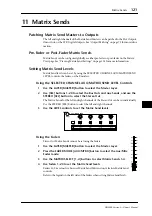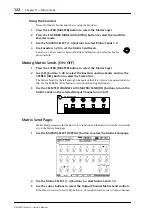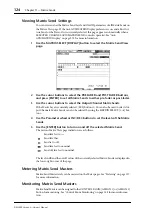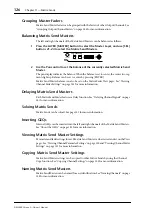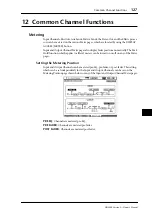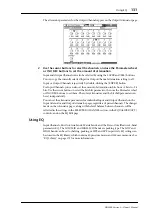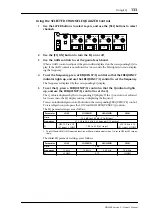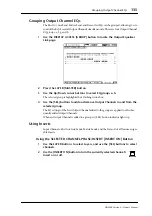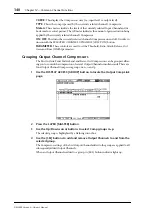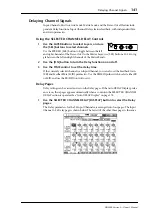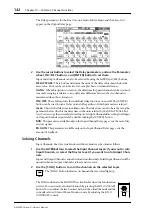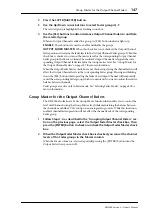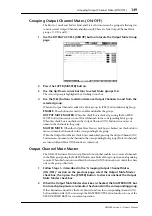
134
Chapter 12—Common Channel Functions
DM2000 Version 2—Owner’s Manual
EQ Edit Pages
EQ parameters can also be set on the EQ Edit page. If the Auto EQUALIZER Display pref-
erence is on, this page appears automatically when a control in the SELECTED CHANNEL
EQUALIZER section is operated. See “Auto EQUALIZER Display” on page 275.
1
Use the EQUALIZER [DISPLAY] button to select the EQ Edit page.
2
Use the LAYER buttons to select Layers, and use the [SEL] buttons to select
channels.
3
Use the cursor buttons to select the parameters, and use the Parameter
wheel and INC/DEC buttons to set them.
EQ ON:
This turns the EQ on and off. The [ENTER] button can be used to turn this on
and off so long as any parameter other than TYPE is selected.
TYPE:
This selects the type of EQ: TYPE I (the EQ type used on legacy Yamaha digital mix-
ing consoles) or TYPE II (a newly developed algorithm).
ATT:
This can be used to attenuate signals pre-EQ. It’s the same Attenuator parameter that
appears on the Attenuator pages. See “Attenuating Signals” on page 130 for more informa-
tion.
CURVE:
This displays the EQ curve of the currently selected Input Channel.
Level meters:
These meters indicate the levels of the currently selected Input Channel
and its horizontal or vertical partner.
LOW, L-MID, H-MID, HIGH:
These are the Q, Frequency (F), and Gain (G) parameters
for the four bands. The parameter (F or Q) you selected using the FREQUENCY/Q control
is highlighted.


